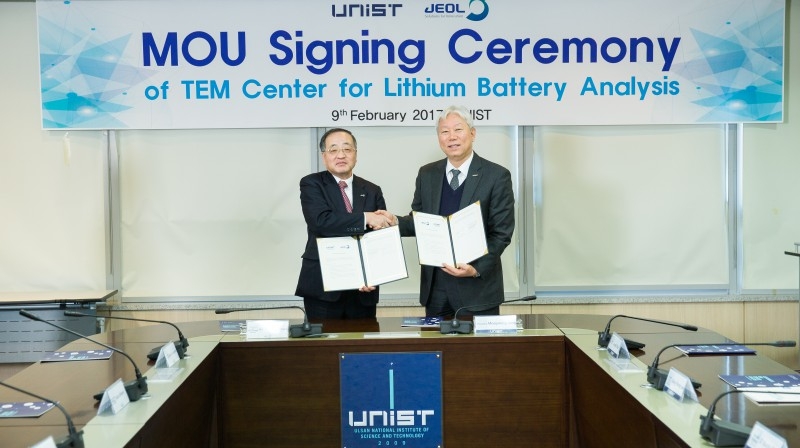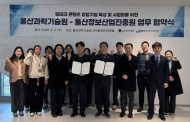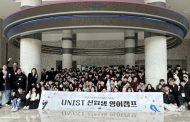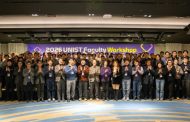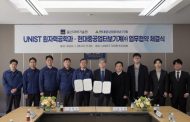Earlier today, UNIST signed a Memorandum of Understanding (MOU) with JEOL Ltd., Japan’s leading manufacturer and supplier of a wide range of scientific and analytical instruments. This collaboration represents a significant commitment to work together to enhance the reliability and safety of lithium ion batteries (LIBs) and associated components.
Through this partnership, the UNIST-JEOL TEM Center for Lithium Battery Analysis will be built in UNIST Secondary Cell Research Center. This is the first time JEOL to set up a joint analysis center on LIBs since the University of Tokyo.
Established in 1949, JEOL Ltd. is a global supplier, researcher and developer of scientific instrumentation, industrial equipment, and medical devices used in the fields of optical communication, nanotechnology, life sciences, forensics and biotechnology. The firm operates nearly 17 overseas subsidiaries and has sales offices located in 30 countries.
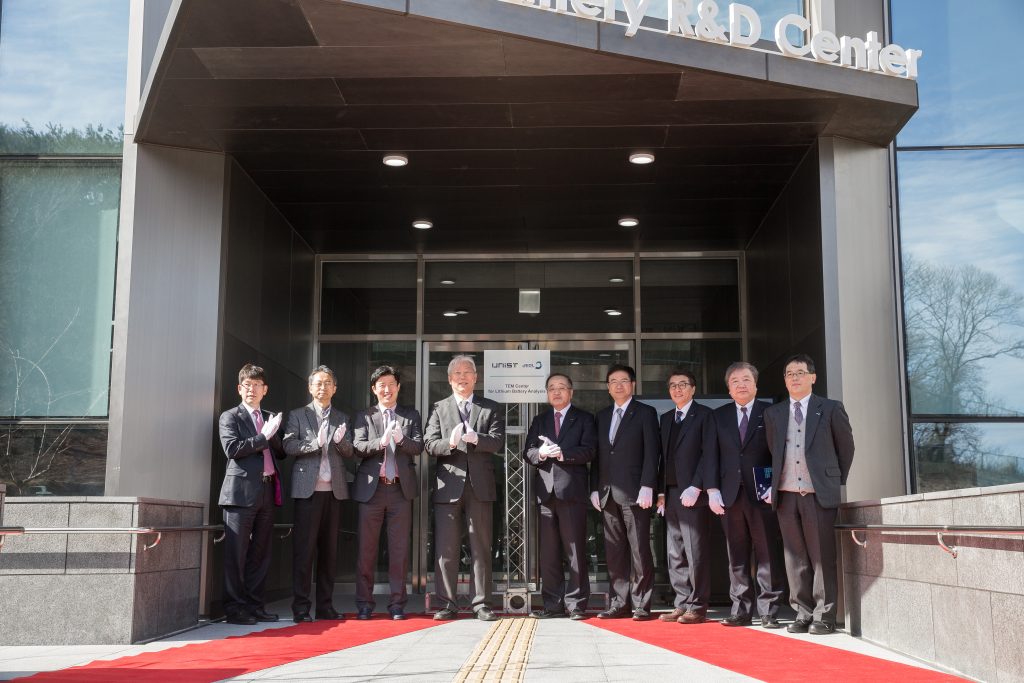
The signboard hanging ceremony of TEM Center for Lithium Battery Analysis.
Exposing LIBs to extremely high or low temperatures, voltages or excessive currents results in accelerated battery degradation and in the worst case battery failure. To ensure a safe use of LIBs, the battery materials must be evaluated for thermal stability.
In the memorandum of understanding, the two organizations promised to expand cooperation and exchange in battery safety research with a focus on thermal stability of LIBs. As part of their research, both organizations will look into the changes in LIB materials that may occur under abnormal operating conditions, such as heating, ignition and breaking. They will use the transmission electron microscopy (TEM) to study minute structures of LIB materials. Through this partnership, they hope to build an ideal battery material that remains stable over very long time scales during continued operation.
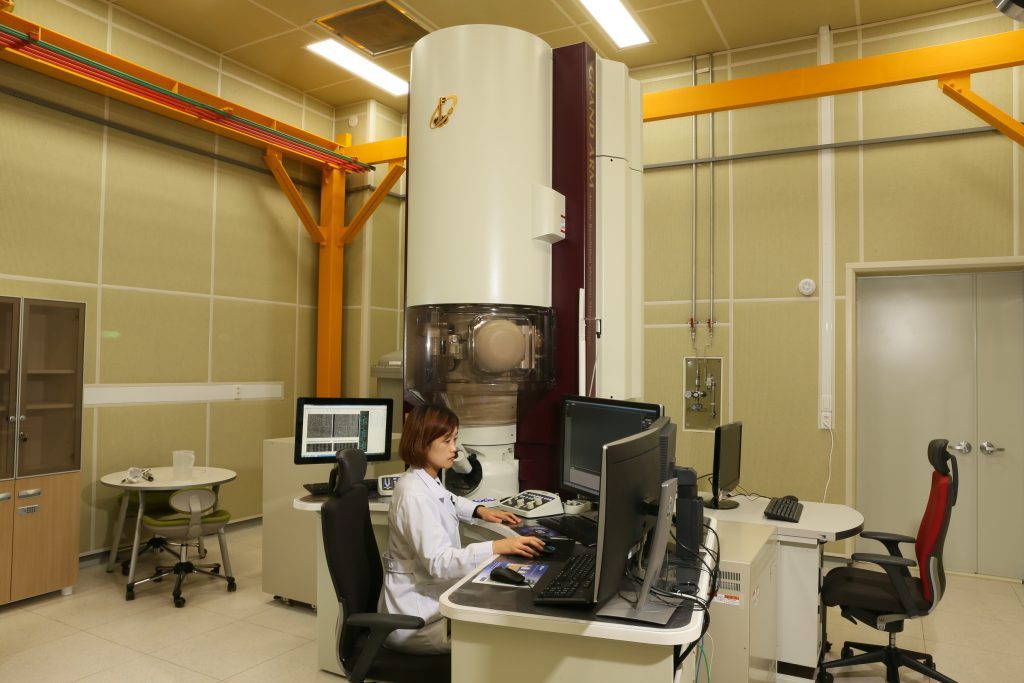
The nation’s first TEM for secondary battery research, located at the UNIST-JEOL TEM Center for Lithium Battery Analysis.
TEM is a microscopy technique in which a beam of electrons is transmitted through an ultra-thin specimen, interacting with the specimen as it passes through it. The use of an electron beam having shorter wavelength makes it possible to observe nanometer-scale structures.
What is shown above is the nation’s first TEM for secondary battery research, located at the UNIST-JEOL TEM Center for Lithium Battery Analysis. This is the latest equipment, established by JEOL Ltd. and is worth about five billion won. It was established as part of the ‘Infra Structure Project to Support Green Energy Material R&D’, supported by the Ministry of Trade, Industry and Energy and the Ulsan City.
“Through this partnership, UNIST will take the lead in creating a secondary battery research ecosystem with Ulsan as the center,” says President Mooyoung Jung.


